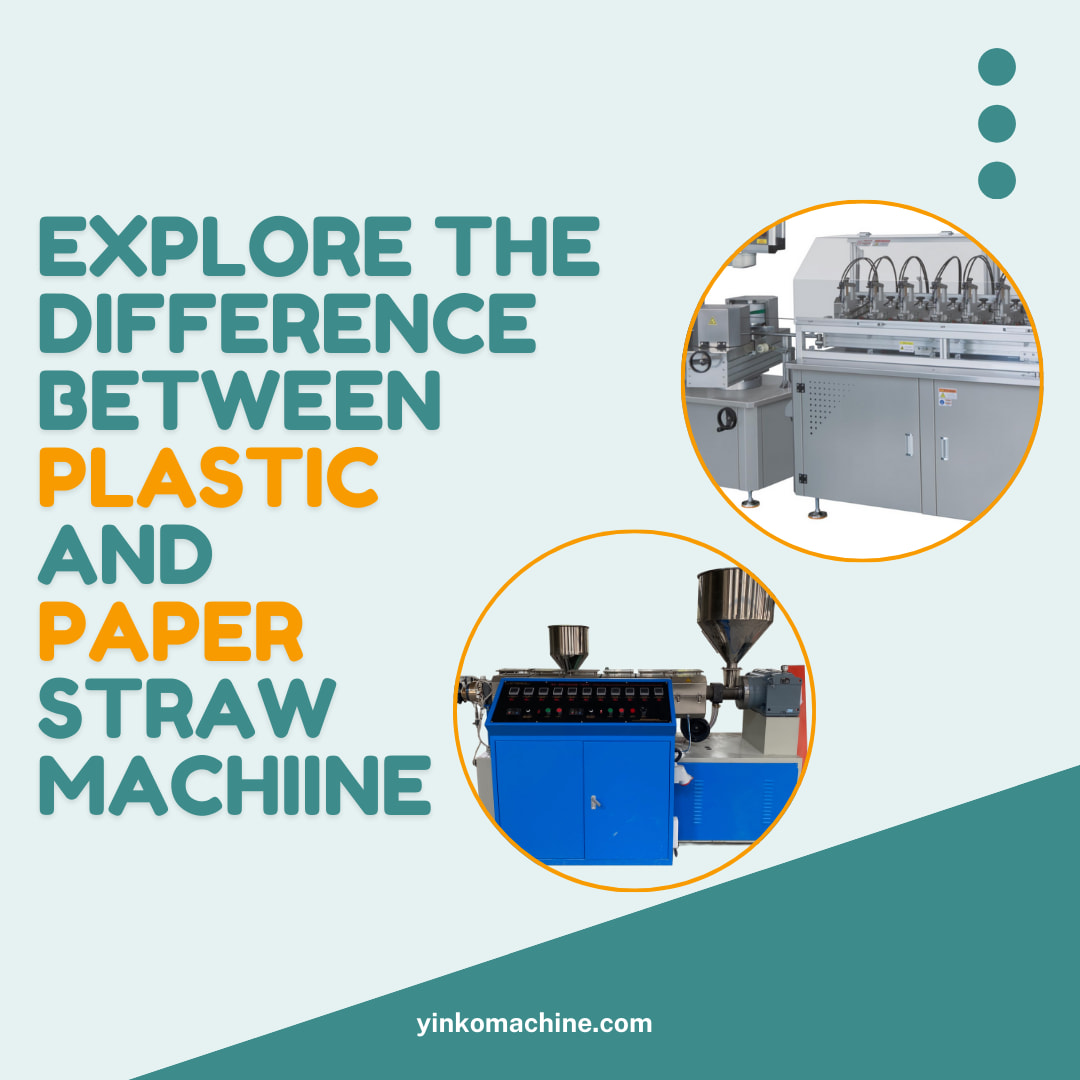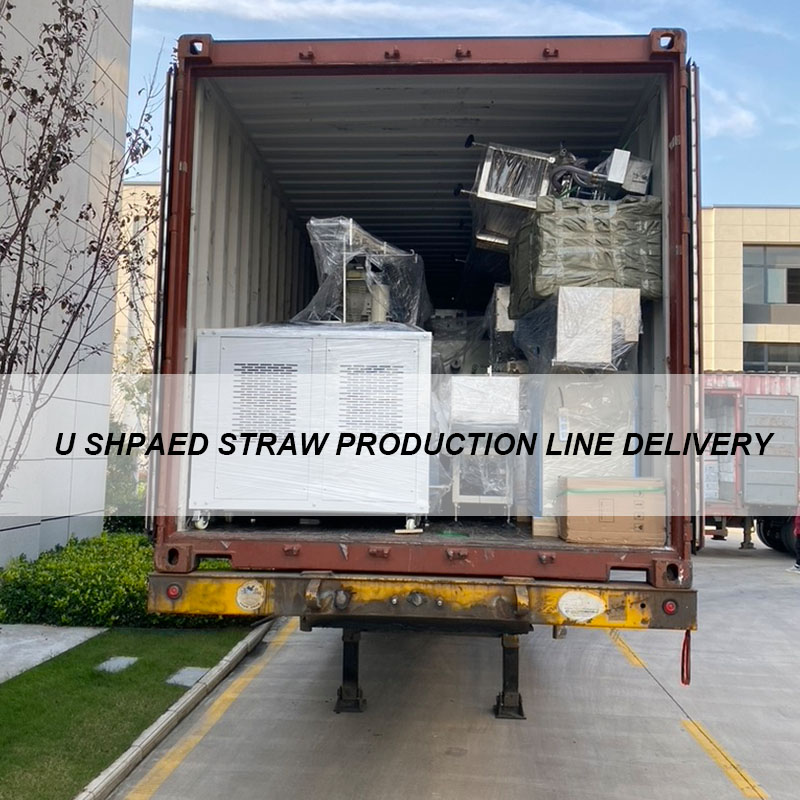 What Is the Difference Between Plastic and Paper Straw Making Machines?
What Is the Difference Between Plastic and Paper Straw Making Machines?
Mar 14, 2025
Introduction
In recent years, environmental regulations have driven the popularity of paper straws, while plastic straws still maintain a strong market presence. Many businesses face a dilemma when choosing between plastic and paper straw-making machines, as each type has its own unique benefits and limitations.
Plastic and paper straw-making machines differ in raw materials, production processes, cost, environmental impact, and market demand. Plastic straw machines offer higher efficiency and lower costs, while paper straw machines align with environmental regulations but come at a higher cost. Choosing the right equipment depends on your business needs and target market.
plastic straw making machine, Normally consists of four parts,
1. Extruder unit,
2. Cooling water tank,
3. Pulling & cutting machine
4. L shaped straw collecting machine
High-speed paper straw making machine, it includes the following parts:
1. Paper roll stand
2. Glue station
3. Straw winding unit
4. Straw cutting system
5. Straw conveyor & collector
6. Dryer is optional
Let’s dive deeper into the key differences between these two types of machines.
1. Raw Materials and Suitability
The fundamental difference between plastic and paper straw-making machines lies in the raw materials used, which significantly impact the production process and product quality.
Plastic straw machines primarily use polypropylene (PP) or polylactic acid (PLA), while paper straw manufacturing relies on food-grade kraft paper and water-based glue.
Plastic straw production involves melting PP or PLA granules, extruding them into a continuous tube, and cutting them into individual straws. PP is cost-effective and widely used, whereas PLA is biodegradable but more expensive.
Paper straw forming machines use multiple layers of kraft paper, bonded together with food-safe adhesive, and shaped into straws. The glue quality and paper thickness determine the final product’s strength and durability.
As the demand for sustainable alternatives grows, biodegradable straw machines for PLA and paper straws are becoming more popular, particularly in regions with strict plastic regulations.
2. Production Process and Operation
The manufacturing process for plastic and paper straws differs significantly, affecting production speed and efficiency.
Plastic straw extrusion machines use a continuous extrusion process where melted plastic is shaped into a straw form, cooled, and cut. These machines are highly automated and require minimal manual intervention.
Paper straw rolling machines involve layering paper, applying adhesive, rolling into tubes, drying, and precision cutting. Since adhesive application and rolling accuracy are crucial, operators must monitor the process closely.
In terms of speed, plastic straw production machines can manufacture 600–1500 straws per minute, whereas automatic paper straw machines operate at a slower rate of 100-300 straws per minute due to the additional processing steps.
3. Cost and Return on Investment
When considering an investment in drinking straw manufacturing, businesses must evaluate both initial costs and long-term operational expenses.
Plastic straw extrusion machines typically range from $10,000 to $30,000, while automatic paper straw machines are priced higher, at $30,000 to $80,000.
Material costs differ: a plastic straw costs around $0.002, while a paper straw costs between $0.02 and $0.05 due to higher raw material expenses.
Profitability considerations: While plastic straw production is more cost-effective, eco-friendly straw production caters to premium markets where sustainable alternatives command higher prices.
For businesses focusing on fast production and lower costs, plastic straw extrusion machines offer a quicker return on investment (ROI). Companies targeting eco-conscious consumers may find biodegradable straw machines a more future-proof choice.
4. Environmental Regulations and Market Demand
The shift toward sustainable straw production has driven major changes in global markets.
Many governments have introduced regulations banning plastic straw production, increasing demand for compostable straw machines that produce PLA or paper alternatives.
In regions like the EU and the U.S., plastic straws are increasingly restricted, leading brands such as McDonald's and Starbucks to adopt paper straw manufacturing.
However, in parts of Asia, Africa, and South America, plastic straw extrusion machines remain widely used due to fewer environmental restrictions.
Some businesses opt for PLA-based drinking straw manufacturing, offering an eco-friendly option without the transition challenges of paper straws.
For companies selling to Western markets, investing in an automatic paper straw machine ensures compliance with regulations. Businesses focusing on affordability and high-speed production may still find plastic straw production a viable option.
5. Maintenance and After-Sales Support
For businesses investing in high-speed straw making, machine maintenance and after-sales support play a critical role in ensuring efficiency.
Plastic straw extrusion machines have a simpler mechanical structure, requiring occasional cleaning and blade replacements, which results in lower maintenance costs.
Paper straw rolling machines include adhesive systems, drying units, and precise cutting mechanisms, requiring frequent calibration and servicing to maintain production quality.
Businesses investing in automatic straw making machines should consider suppliers that offer technical training, spare parts availability, and responsive support to minimize downtime.
For companies new to disposable straw making, selecting a manufacturer with strong technical support is crucial for long-term success.
Conclusion
Both plastic straw extrusion machines and automatic paper straw machines provide distinct benefits, and choosing the right one depends on your business objectives and market focus.
If you prioritize cost efficiency and high-speed production, a plastic straw production machine is the best option.
If you target eco-conscious markets and sustainability, a biodegradable straw machine or paper straw manufacturing system is a smarter investment.
Evaluate factors such as market demand, operational complexity, and long-term profitability before making a decision.
Need expert advice? Contact us today to find the best straw-making solution for your business!
LEE MAS

 What Is the Difference Between Plastic and Paper Straw Making Machines?
What Is the Difference Between Plastic and Paper Straw Making Machines?
 La línea de producción de paja en forma de U en ruta hacia el norte de África promete un negocio próspero para el cliente
La línea de producción de paja en forma de U en ruta hacia el norte de África promete un negocio próspero para el cliente